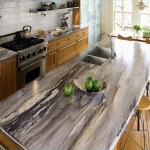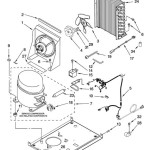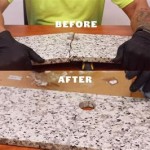Are Countertop Ice Makers Safe? A Comprehensive Look
Countertop ice makers have surged in popularity, offering a convenient solution for producing ice on demand in homes, offices, and recreational settings. These appliances bypass the need for traditional ice trays and often boast rapid ice production capabilities. However, along with their convenience, questions regarding the safety of countertop ice makers frequently arise. This article aims to provide a comprehensive exploration of the safety aspects associated with these appliances, examining potential risks and offering insights into responsible usage.
The primary concern surrounding countertop ice makers centers on the potential for bacterial and mold growth within the unit. The internal environment of an ice maker, characterized by moisture and fluctuating temperatures, can create a favorable breeding ground for microorganisms. Improper cleaning and maintenance can exacerbate this issue, leading to the contamination of the ice produced.
Another aspect of safety involves the materials used in the construction of the ice maker. The quality of plastics and metals used in the water reservoir, ice basket, and internal components can impact the overall safety of the appliance. Inferior materials may leach chemicals into the water and ice, posing a potential health hazard.
Furthermore, the electrical safety of countertop ice makers is a significant consideration. Like any electrical appliance, malfunctions or improper wiring can lead to electrical shocks or fires. Adherence to safety standards and proper grounding are crucial for ensuring safe operation.
Understanding Potential Microbial Contamination
The risk of microbial contamination is arguably the most significant safety concern associated with countertop ice makers. Bacteria, mold, and other microorganisms can thrive in the damp and enclosed environment within the appliance. These microorganisms can originate from various sources, including the water supply, airborne particles, and even the hands of individuals handling the ice maker.
Studies have shown that ice machines, in general, can harbor a variety of bacteria, including common environmental organisms and, in some cases, pathogens. The specific types of microorganisms found can vary depending on factors such as the water source, the cleanliness of the surrounding environment, and the frequency of cleaning. If the reservoir is filled from hard water, mineral deposits can affect the operation of the ice maker.
The presence of bacteria and mold can not only affect the taste and odor of the ice but also pose a health risk, particularly for individuals with compromised immune systems. Consuming contaminated ice can lead to gastrointestinal illnesses and other health problems.
To mitigate the risk of microbial contamination, regular and thorough cleaning is essential. Manufacturers typically recommend cleaning the ice maker at least once a week, or more frequently if the appliance is used heavily. The cleaning process should involve disinfecting the water reservoir, ice basket, and other internal components with a suitable cleaning solution, such as a diluted bleach solution or a commercially available ice machine cleaner. It is crucial to follow the manufacturer's instructions carefully when cleaning the ice maker to avoid damaging the appliance or leaving behind harmful residues.
In addition to regular cleaning, using filtered water can reduce the risk of microbial contamination. Filtered water typically contains fewer bacteria and other impurities than tap water, which can help to prevent the buildup of microorganisms within the ice maker. Regularly draining and replacing the water in the reservoir can also help to minimize the risk of contamination.
Material Safety and Potential Leaching
The materials used in the construction of a countertop ice maker can directly impact the safety of the ice produced. The water reservoir, ice basket, and other components that come into contact with water and ice should be made from food-grade materials that are safe for contact with potable water.
Some concerns have been raised regarding the potential for certain plastics to leach chemicals into the water and ice, particularly when exposed to varying temperatures. Bisphenol A (BPA) is one such chemical that has been linked to various health concerns. While many manufacturers now use BPA-free plastics, it is important to verify that the ice maker you are considering is indeed made from safe, food-grade materials. Look for certifications from reputable organizations like the National Sanitation Foundation (NSF), which indicate that the appliance has been tested and certified to meet safety standards.
Metals used in the construction of ice makers, such as stainless steel, should also be of high quality and resistant to corrosion. Corrosion can lead to the release of metal ions into the water and ice, potentially affecting the taste and posing a health risk. It is crucial to choose an ice maker made from durable, corrosion-resistant materials to ensure the safety and longevity of the appliance.
Furthermore, the adhesives and sealants used in the construction of the ice maker should also be food-grade and non-toxic. Inferior adhesives and sealants can leach chemicals into the water and ice, potentially compromising its safety. It is advisable to choose an ice maker from a reputable brand that uses high-quality materials and adheres to stringent manufacturing standards.
Electrical Safety Considerations
Like any electrical appliance, countertop ice makers pose a potential risk of electrical shock or fire if not used properly. It is crucial to follow the manufacturer's instructions carefully and to take precautions to ensure safe operation.
One of the most important safety precautions is to ensure that the ice maker is properly grounded. Grounding provides a path for stray electrical current to flow safely to the ground, preventing electrical shocks. The ice maker should be plugged into a grounded outlet and should not be used with an adapter that defeats the grounding function.
It is also important to inspect the power cord regularly for any signs of damage, such as fraying or cracking. A damaged power cord can pose a serious electrical hazard. If you notice any damage to the power cord, the ice maker should be unplugged immediately and the cord should be replaced by a qualified technician.
Never operate the ice maker in a wet or damp environment. Water can conduct electricity and increase the risk of electrical shock. Ensure that the ice maker is placed on a dry, level surface and that it is not exposed to water or other liquids.
If the ice maker experiences a malfunction, such as a burning smell or unusual noises, it should be unplugged immediately and not used until it has been inspected and repaired by a qualified technician. Attempting to repair the ice maker yourself can be dangerous and may void the warranty.
Overloading electrical outlets can also pose a fire hazard. It is advisable to plug the ice maker into a dedicated outlet that is not shared with other high-wattage appliances. This can help to prevent overheating and reduce the risk of fire.
Regularly check the ice maker for any signs of electrical problems, such as flickering lights or tripped circuit breakers. These symptoms may indicate a potential electrical issue that needs to be addressed promptly.
In addition to these precautions, it is important to follow the manufacturer's instructions regarding the proper voltage and amperage requirements for the ice maker. Using the ice maker with an incorrect voltage or amperage can damage the appliance and pose a safety hazard.
By taking these electrical safety precautions, individuals can minimize the risk of electrical shocks, fires, and other hazards associated with countertop ice makers.
In summary, the safety of countertop ice makers hinges on several factors, including the potential for microbial contamination, the quality of materials used in construction, and adherence to electrical safety guidelines. Regular cleaning and maintenance, the use of filtered water, and careful attention to electrical safety are all crucial for ensuring the safe and reliable operation of these appliances. By understanding these potential risks and taking appropriate precautions, individuals can enjoy the convenience of countertop ice makers without compromising their health or safety.

The Best Countertop Ice Maker For Fancy Cocktails Chilled Drinks 2025 Bon Appétit

How To Clean The Countertop Ice Maker Tokit Us

The Best Countertop Ice Maker For Fancy Cocktails Chilled Drinks 2025 Bon Appétit

How To Clean A Countertop Ice Maker At Home

How To Clean Ice Machine Maker Natural Safe Cleaning

Newair 26 Lbs Portable Ice Maker In Silver Nim026ms00 The Home

60lbs 24h Countertop Nugget Ice Maker Portable Pebble Machine With Chairliving

Reviews For Frigidaire 48 Lb Freestanding Ice Maker In Stainless Steel Pg 3 The Home

Maxx Ice Countertop Or Built In Maker 15 W Lbs Crescent

Koolatron Kim26b Compact Countertop Ice Maker
See Also








